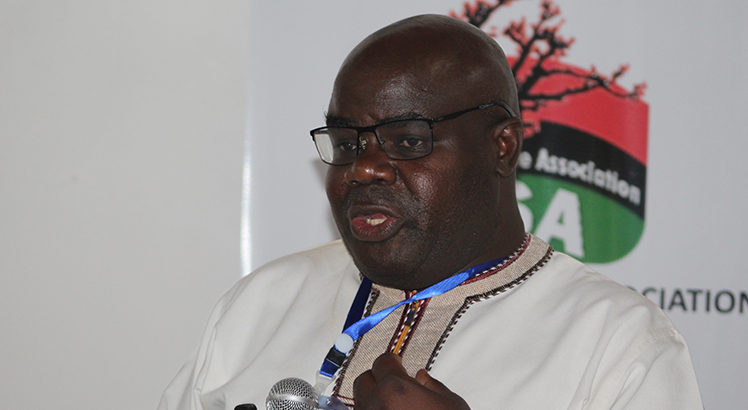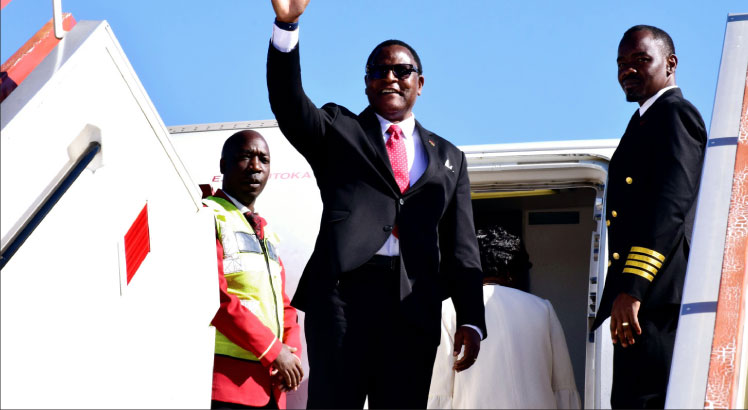Exactly three years ago today, President Lazarus Chakwera, leading the then nine political-party Tonse Alliance, took oath of office with a promise to transform Malawians in all spheres of life.
The biblical ‘Promised Land’ of Canaan was the buzzword during the campaign trail for the court-sanctioned fresh presidential election held on June 23 2020. The then opposition pair of Chakwera and his running mate Saulos Chilima, now the country’s Vice-President, criss-crossed the country such that it was little wonder 59.6 percent of the electorate gave them their votes.
But three years later today, various political, economics and governance pundits feel the country is economically stuck or worse in reverse gear with a leadership that does not seem to care about the direction it is taking.
Two key presenters at a Public Affairs Committee (PAC) Meeting in Mangochi last Thursday highlighted a plethora of shortfalls they feel are rocking the boat.
University of Malawi (Unima) associate professor of political science Boniface Dulani and economist Farai Chigaru argued that Malawians have been left with little hope as living standards continue to deteriorate.
In his assessment of three years into the Chakwera presidency titled ‘The state of governance in Malawi: A chaotic political economy’, Dulani observed that there has been an increase in government fraud and dubious deals.
Dulani: Corruption is seen to be severe
He said foreign exchange shortages, currency devaluation, high inflation rate and rising corruption were worsening lives of Malawians. He said Malawi was fast turning into a democratically progressive country on the verge of economic collapse.
Said Dulani: “The current government has let down people on many issues. Living standards have gone down.
“There are also reports of widespread corruption and extortion by public officials in procurement, for example the fertiliser deals struck with a butchery in the United Kingdom and the recent one with a firm in Romania.”
He said institutions tasked with fighting the vice are increasingly seen as dysfunctional, too slow and sometimes corrupt themselves.
“Corruption is seen to be particularly severe in the police, [at] Registrar General’s Office, Immigration Department, Tax Department, Directorate of Road Traffic and Safety Services and in the Judiciary,” said Dulani, who is also the director of surveys at Afrobarometer and a senior partner at Institute of Public Opinion in Zomba.
The scholar and researcher said the case against United Kingdom-based businessperson Zuneth Sattar has demonstrated the depth to which the country is embroiled in a corruption web that reaches the very top of the government machinery and the extent to which high-level perpetrators are willing to fight back from being held to account.
“A government that came into power with popular support and high expectations has let the people down,” he said.
In his presentation titled ‘Demystifying Malawi’s [lack of] economic growth: Retrospect and prospect, Chigaru, who teaches economics at Unima, said the country is facing acute forex shortages because development strategies have long recommended export products yet it does not have a comparative advantage on the international market to produce a particular good or service at a lower opportunity cost than its trading partners.
He said: “Bilateral trade in Africa targets only 0.0005 percent of the total potential demand. So, producing products for the African market targets three percent of the potential demand.
“Due to demand and supply principles, wrong target markets explain the current phenomena in Malawi in the following way: low prices for our local products on the market, high rejection rates of our products and low forex earned.”
Chigaru said it is imperative to target the 97 percent of the market to have an impact.
“However, we need to be viable on the international market to achieve this. Viability stems from being more efficient than other players in that product; hence, producing products that we have a comparative advantage in,” he said.
In a separate interview, public expenditure tracking expert Mavuto Bamusi said the three years Tonse Alliance has been in power have been dominated by hunger, rise in prices of goods and services, rise in public debt and widening inequality.
He said: “Leadership deficit within the Tonse government is the primary cause. For example, a significant number of Tonse manifesto promises have not been delivered.
“A good case is the promise for 1 million jobs, trimming presidential powers, reducing presidential convoy and foreign trips.”
Bamusi, who served as an aide to former president Peter Mutharika, also noted that the role of opposition and civil society organisations (CSOs) has been the most disappointing and dissatisfying, with a disjointed Democratic Progressive Party (DPP) lacking unity and direction.
PAC executive director Robert Phiri said in an interview the quasi-religious group’s main objective is to enhance dialogue on contentious issues and that resolutions from the meeting will feed into a concept of the 6th All-inclusive Stakeholders Conference to take place soon.
“In fact, PAC is in the process of revising its strategy. You will recall that this activity was supposed to be implemented last year. Now a lot has happened since last year both politically and economically.
“So the meeting we held in Mangochi should be deemed as a stepping stone to public dialogue,” he said.
Minister of Information and Digitisation Moses Kunkuyu did not respond to our questionnaire on the issues raised.
However, the Malawi Government is on record as having cited the economic impact of the Covid-19 pandemic, the Russian invasion of Ukraine which disrupted global supply chains, especially for fertiliser and general economic slow down as some of the factors that have derailed implementation of the promises.
The post Tonse’s 3 years under scrutiny first appeared on The Nation Online.
 Moni Malawi
Moni Malawi 

